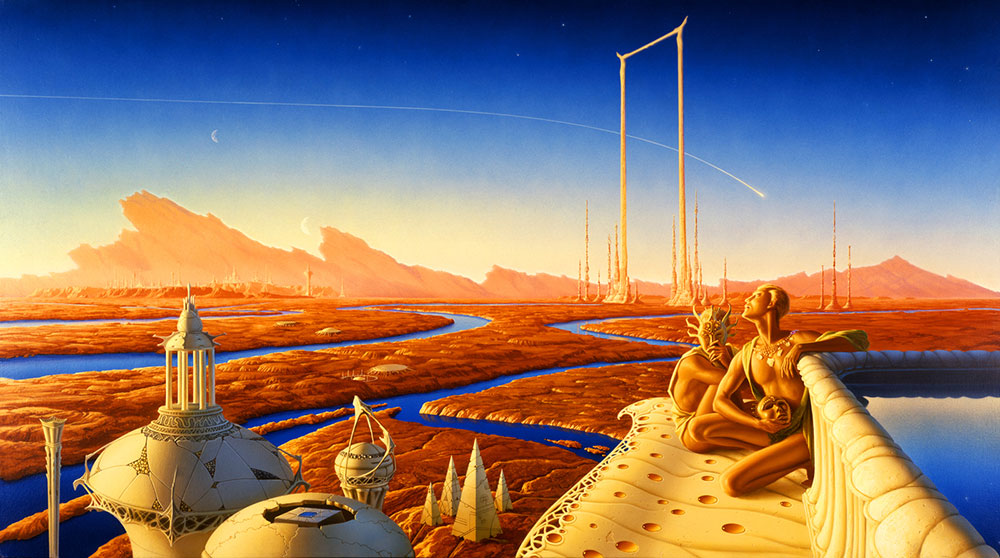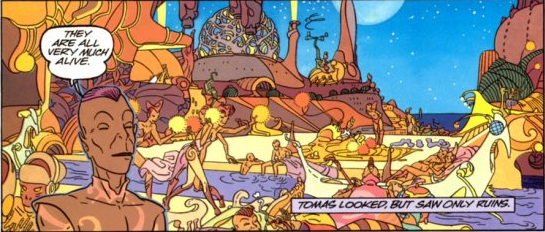
76. Glenn Miller Band, “The Little Man Who Wasn’t There” (1939):
This song’s opening lyric –
Last night I saw upon the stair
a little man who wasn’t there
he wasn’t there again today
oh, how I wish he’d go away
– is borrowed, with slight alterations, from William Hughes Mearns’s poem “Antigonish” (a reference to a famous haunted-house case in Antigonish, Nova Scotia). There’s conflicting information as to when he wrote it (by some accounts, 1899; by others, that date was originally part of the title – a reference to the haunting – and not the date of composition). There are also conflicting accounts as to whether the original version reads:
Yesterday upon the stair
I met a man who wasn’t there!
He wasn’t there again today!
I wish, I wish he’d go away!
or instead:
As I was going up the stair,
I met a man who wasn’t there!
He wasn’t there again to-day!
I wish, I wish he’d stay away!
Some online sources, including Wikipedia, attribute the musical version’s subsequent verses about coming back at 3:00 etc. to Mearns also, but as far as I can determine, the original poem was just those four lines.
Mearns did apparently write several sequels to the poem, however – the most popular of which, “Alibi,” includes the interesting twist of the POV narrator’s being a man who wasn’t there:
As I was falling down the stair
I met a bump that wasn’t there;
it might have put me on the shelf
except I wasn’t there myself.
– which brings us to:
77. David Bowie, “The Man Who Sold the World” (1970):
The title is borrowed from a Heinlein story (“The Man Who Sold the Moon”), but the lyrics “We passed upon the stair … although I wasn’t there” seem like a mash-up of the stairway meeting in “Antigonish” and the POV reversal of “Alibi” – which is why I quoted those two poems above.
But another influence that’s been suggested for the song is Ray Bradbury’s 1950 story “Night Meeting” (one of the tales in his Martian Chronicles), in which a native from Mars and a human colonist from Earth encounter each other unexpectedly across a temporal rift in a dark Martian valley. Consider the following excerpt from that story:
“I can see through you!” said Tomás.
“And I through you!” said the Martian, stepping back.
Tomás felt of his own body and, feeling the warmth, was reassured. I am real, he thought.
The Martian touched his own nose and lips. “I have flesh,” he said, half aloud. “I am alive.”
Tomás stared at the stranger. “And if I am real, then you must be dead.”
“No, you!”
“A ghost!”
“A phantom!”
They pointed at each other, with starlight burning in their limbs like daggers and icicles and fireflies, and then fell to judging their limbs again, each finding himself intact, hot, excited, stunned, awed, and the other, ah yes, that other over there, unreal, a ghostly prism flashing the accumulated light of distant worlds. …

Michael Whelan’s painting for the cover of The Martian Chronicles
“We landed over a year ago, remember?”
“No.”
“And all of you were dead, all but a few. You’re rare, don’t you know that?”
“That’s not true.”
“Yes, dead. I saw the bodies. Black, in the rooms, in the houses, dead. Thousands of them.”
“That’s ridiculous. We’re alive!”
“Mister, you’re invaded, only you don’t know it. You must have escaped.”
“I haven’t escaped; there was nothing to escape. What do you mean? I’m on my way to a festival now at the canal, near the Eniall Mountains. I was there last night. Don’t you see the city there?” The Martian pointed.
Tomás looked and saw the ruins. “Why, that city’s been dead thousands of years.”
The Martian laughed. “Dead. I slept there yesterday! … See all the carnival lights? There are beautiful boats as slim as women, beautiful women as slim as boats, women the color of sand, women with fire flowers in their hands. I can see them, small, running in the streets there. That’s where I’m going now, to the festival; we’ll float on the waters all night long; we’ll sing, we’ll drink, we’ll make love. Can’t you see it?”
“Mister, that city is dead as a dried lizard. …”
From Daniel Torres’s illustration, for the Ray Bradbury Chronicles
The Martian grew very serious. “Tell me again. You do not see the city the way I describe it? The pillars very white, the boats very slender, the festival lights – oh, I see them clearly! And listen! I can hear them singing. It’s no space away at all.”
Tomás listened and shook his head. “No.”
“And I, on the other hand,” said the Martian, “cannot see what you describe. … But … as I came up the pass an hour ago …. I felt the strangeness, the road, the light, and for a moment I felt as if I were the last man alive on this world ….”
“So did I!” said Tomás, and it was like talking to an old and dear friend, confiding, growing warm with the topic.
The Martian closed his eyes and opened them again. “This can only mean one thing. It has to do with Time. Yes. You are a figment of the Past!”
“No, you are from the Past,” said the Earth Man.
“You are so certain. How can you prove who is from the Past, who from the Future? …”
“But the ruins prove it! They prove that I am the Future, I am alive, you are dead!”
“Everything in me denies this. My heart beats, my stomach hungers, my mouth thirsts. No, no, not dead, not alive, either of us. More alive than anything else. Caught between is more like it. Two strangers passing in the night, that is it. Two strangers passing. … What does it matter who is Past or Future, if we are both alive, for what follows will follow, tomorrow or in ten thousand years. How do you know that those temples are not the temples of your own civilization one hundred centuries from now, tumbled and broken? You do not know. Then don’t ask. …”
Tomás put out his hand. The Martian did likewise in imitation.
Their hands did not touch; they melted through each other.
“Will we meet again?”
“Who knows? Perhaps some other night.”
Certainly it’s not hard to feel an echo of that passage in these lines:
We passed upon the stair
we spoke of was and when
although I wasn’t there
he said I was his friend
which came as some surprise
I spoke into his eyes:
“I thought you died alone
a long long time ago”“Oh no, not me ….”
I laughed and shook his hand ….
I gazed a gazely stare
at all the millions here
we must have died alone
a long long time ago
Who knows? not me ….
78. The Highwaymen (Willie Nelson, Kris Kristofferson, Waylon Jennings, and Johnny Cash), “Highwayman” (1985):
Finally, this song about a highwayman from the past who is also a starship pilot in the future seems to make an appropriate pairing with Bradbury and Bowie’s time-crossed interlocutors:
The line “Perhaps I may become a highwayman again / or I may simply be a single drop of rain” may be an echo of Taliesin’s similar declaration:
I have been a multitude of shapes ….
I have been a drop in a shower ….
I have been a sword in the grasp of a hand ….

No comments yet.